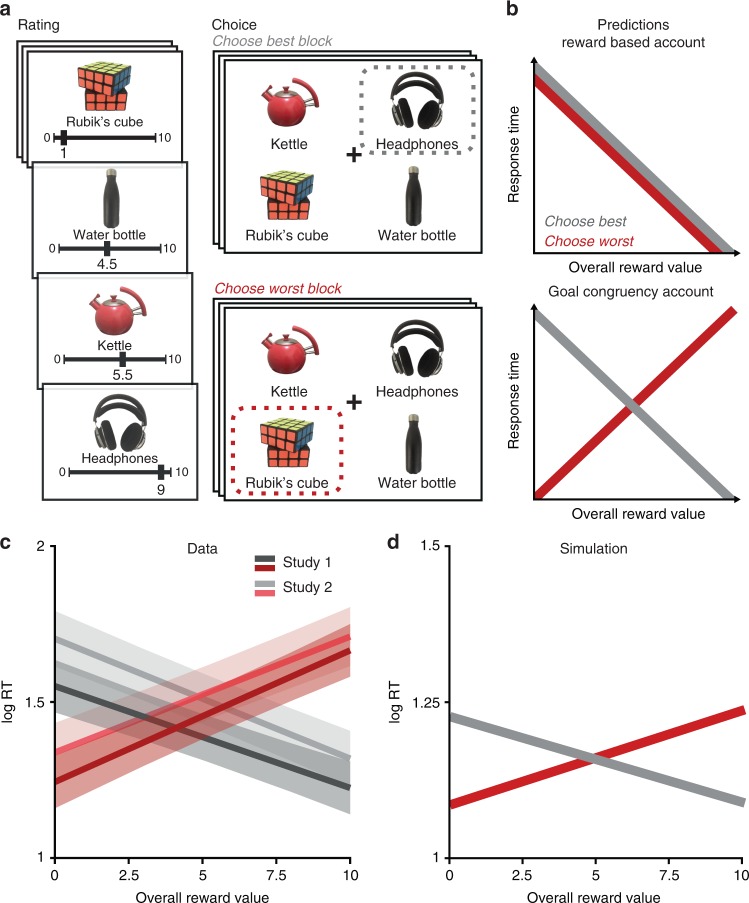Fig. 1.
Overall value effects on RT are driven by goal congruency rather than reward value. a After evaluating each item in isolation (left), participants saw sets of four options and (in separate blocks) were instructed to choose either the best or the worst option (right). The same example is shown for both blocks but each choice sets was only viewed once in a session. b Top: A reward-based account predicts that RTs should decrease with overall value of the set, irrespective of the choice goal. Bottom: A goal congruency account predicts that RTs should decrease with overall value in Choose-Best blocks but instead increase with overall value in Choose-Worst Blocks. c Both Study 1 (behavioral) and Study 2 (fMRI) find the task-specific RT reversal predicted by a goal congruency account (see also Supplementary Study 1, Supplementary Discussion). Shaded error bars show 95% confidence intervals. d Our empirical findings were captured by an LCA model that took goal values (rather than reward values) as inputs

